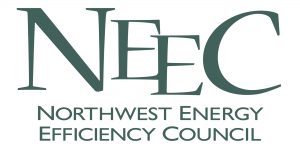The following piece by Sharon Lee appeared in the Seattle Times on December 23, 2021.
My No. 1 job as executive director of the Low Income Housing Institute is to provide affordable housing for workers in low-wage jobs and shelter for people experiencing homelessness. I firmly believe that housing is a human right and that it is a transformative vehicle to advance social justice. During the past few years in the Pacific Northwest, we have seen once-in-a-generation wildfires fill our sky with smoke become once-every-summer wildfires, and I believe now more so than ever that we must look at affordable housing as a climate-justice issue — and a climate solution.
I’ve always thought of cars and the auto industry as big culprits in terms of pollution and climate change, not our big buildings offering dozens of safe, affordable apartments for mothers with children, veterans, seniors, refugees, formerly homeless individuals and others. But it turns out buildings are gas guzzlers, too, and in a surprisingly big way, when powered with so-called “natural” gas.
Buildings are one of the largest and fastest-growing sources of climate pollution in Washington, contributing about one-quarter (23%) of our state’s carbon emissions. Why should I also care about climate change and LIHI’s buildings when homelessness is at an all-time high? One reason is that last summer’s heat waves, which killed hundreds across the Northwest, hit homeless people and those in poorly insulated houses the hardest. Another is that those with the lowest incomes will have the longest, toughest financial recovery from the recent devastating floods.
My first priority is to end homelessness by dramatically growing our affordable housing options, opening tiny house villages and converting hotels into shelter. However, the urgency of putting roofs over heads does not mean we must mortgage our future. I also want our building stock to contribute to community health over the long-term, addressing the housing crisis and the climate crisis together. We can do that through all-electric building to ensure fossil fuel-free housing.
My vocabulary in recent years has expanded to include not only “heat dome” and “atmospheric river,” but also the far more pleasant “electric heat pump.” While several years ago many people thought of “green buildings” as something for the upper income brackets, now we see building green as smart and cost effective for those on limited incomes. No one should live in “leaky buildings,” ones that are uncomfortably drafty, cold and even moldy from moisture coming in. Building energy codes, while a dull-sounding term, are exciting for our sector in terms of the benefits the codes bring to residents who can live in physical comfort. We must pay attention to “building envelopes” that help keep buildings airtight, not leaky — cooler in the summer and warmer in the winter.
Going all-electric also makes smart financial sense for those of us working in the affordable housing sector. When it comes to financing affordable housing, raising money for capital costs is almost always easier than ensuring we have enough operating funds for the life of the building and its tenants. When we spend the money up front to make buildings more energy-efficient with electric heat pumps for space and water heating, our long-term utility costs go down. Investing in energy efficiency for these multifamily buildings helps build long-term economic resilience for the entire housing market.
When Washingtonians suffer through extreme weather events, those living in buildings built to the highest standards of energy code fare the best. And in this year of devastating climate-driven wildfires, and unprecedented and deadly heat waves and flooding, it has never been more necessary for everyone to have access to healthy, climate-ready and energy-efficient buildings, regardless of race or income.
When people think of affordable housing advocacy they often think more about homelessness and less about energy efficiency or commercial energy codes. But developing affordable housing cannot just be about getting homes built as fast as possible. We need to build thoughtfully and sustainably. We must all do our part to address climate change, starting with smart all-electric building energy codes.
